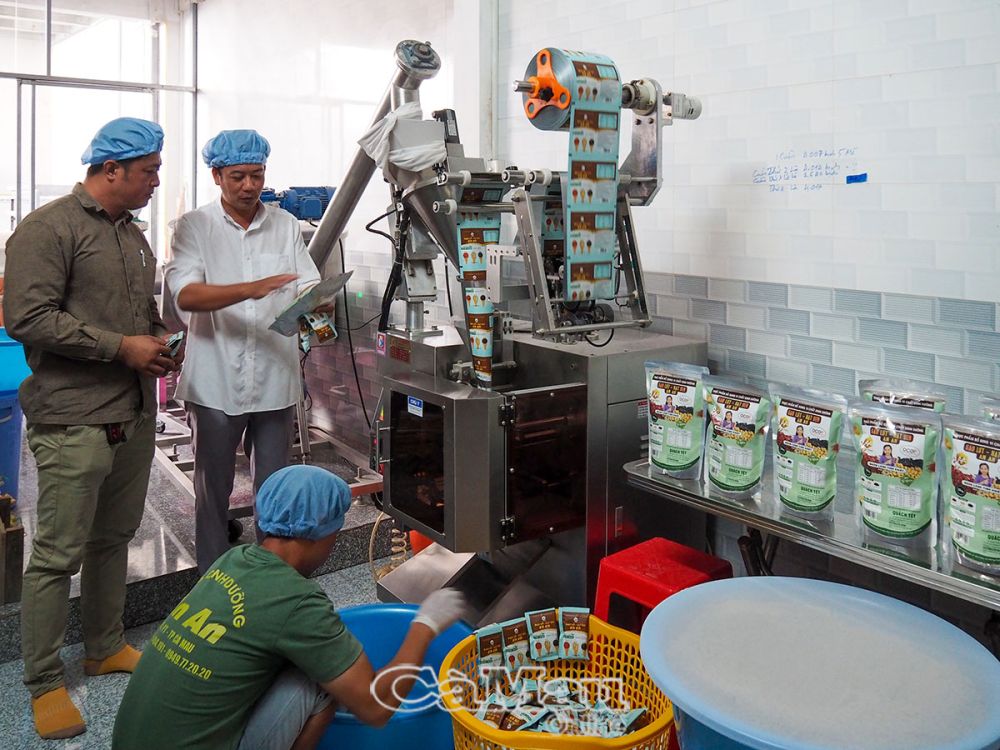
Ca Mau’s industrial promotion boosts rural industry growth
19:05 | 23/03/2025 20:10 | 04/11/2025Industry
Shandong Pilot Free Trade Zone and Smart Port highlights economic modernization
On the morning of June 17, 2025, within the framework of her working visit to Shandong Province, Deputy Minister of Industry and Trade Phan Thi Thang conducted a field visit and held meetings at the Shandong Pilot Free Trade Zone (Qingdao Area), followed by a tour of the fully automated Qingdao Container Port.
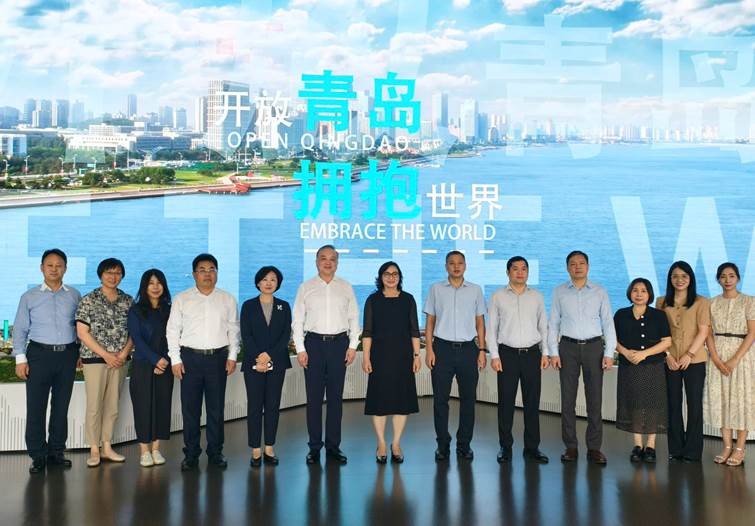 |
| Deputy Minister of Industry and Trade Phan Thi Thang (center) at the Shandong Pilot Free Trade Zone. |
The Qingdao Subzone covers a total area of 52 square kilometers and benefits from a strategic location with a comprehensive transportation network integrating sea, rail, road, and air logistics. This intermodal connectivity has positioned the subzone as a gateway for global resources.
Planned as a focal point for key industries including the modern marine economy, international trade, maritime logistics, advanced manufacturing, and modern finance, the Qingdao Subzone aspires to become a regional maritime transport hub in Northeast Asia and a major innovation center in Eastern China. With hundreds of pioneering reforms in management mechanisms recognized by both the central government and the Shandong provincial authority, the subzone has cultivated a model of integrated development across shipping, trade, and finance—emphasizing the close linkage between transport, commerce, and financial investment.
After the working session at the subzone, Deputy Minister Thang visited the Qingdao Fully Automated Container Port—the first of its kind in Asia and the world’s first smart and green seaport meeting global standards. The port boasts an average handling capacity of 36.2 TEUs per hour, peaking at 44.6 TEUs per hour—over 50% higher than other automated ports worldwide. It has broken five global records in automated container handling efficiency. Almost entirely unmanned, the port’s operations are run by computer systems, and large-scale mechanical equipment functions fully autonomously. This innovation reduces the need for manual labor at traditional ports, contributing to the transition from a labor-intensive economy to a smart, technology-driven one.
Strengthening retail partnerships with Liqun Group to bring Vietnamese products to Chinese consumers
On the afternoon of June 17, Deputy Minister Phan Thi Thang met with Xu Gongzao, Chairman of the Board of Liqun Group, at the group’s headquarters in Qingdao to learn about their retail and distribution model and explore potential entry points for Vietnamese goods into the Chinese market.
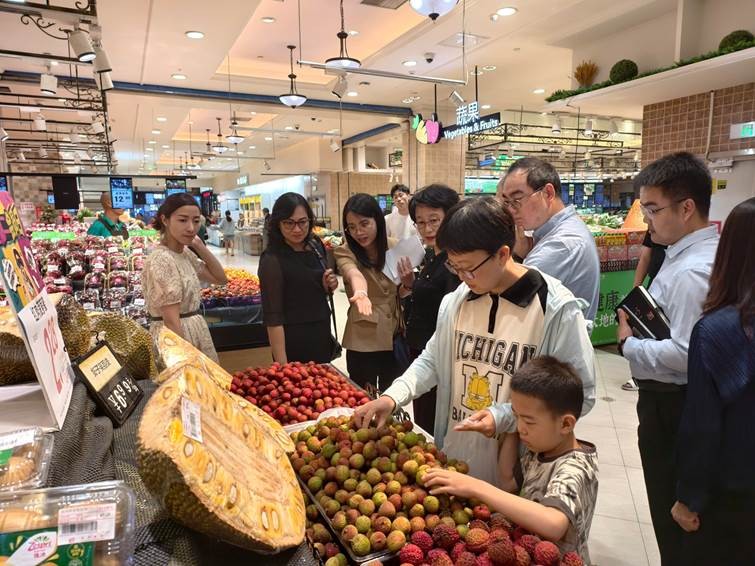 |
| Deputy Minister Thang toured Liqun’s supermarket area. |
Liqun Group is a large-scale multinational conglomerate operating across a wide range of sectors. Its core businesses include retail chain operations, smart logistics, food processing, foreign trade, cross-border e-commerce, pharmaceutical logistics and pharmacies, hospitality, tourism-related finance, and real estate development. Through digital transformation, the group has successfully integrated its diverse operations.
Liqun has invested in building its own intelligent supply chain centers and directly sources products from origin areas. These are then distributed nationwide through its logistics network.
At the meeting, Xu expressed his appreciation for the support provided by the Vietnamese Ministry of Industry and Trade during the group’s visit to Vietnam in late May to seek partnerships. He announced that Liqun Group had connected with over 40 Vietnamese enterprises and was in detailed discussions with 22 companies, primarily in the agricultural production and supply sectors. Mr. Xu proposed that the Ministry of Industry and Trade consider organizing a “Vietnamese Products Week” at Liqun’s commercial centers to promote high-quality Vietnamese goods to Chinese consumers. He also offered to allocate space for Vietnam to showcase and introduce its products.
Deputy Minister Phan Thi Thang expressed her impression of Liqun Group’s development, especially its direct-from-farm procurement model. She emphasized that Vietnam’s retail sector would benefit significantly from the presence of experienced international distributors like Liqun, and welcomed the group to explore investment opportunities in Vietnam to support the modernization of the country’s retail infrastructure, management capacity, and product distribution abroad.
The Deputy Minister urged Liqun to facilitate Vietnamese product access to its distribution network, particularly for high-quality agricultural products. She also welcomed the proposal to organize a promotional week for Vietnamese goods and assigned the Department of Foreign Market Development to coordinate with relevant agencies to implement the initiative as soon as possible.
Prior to the meeting, Deputy Minister Thang toured Liqun’s supermarket area, where she was introduced to the group’s self-sourced, packaged, and distributed products, as well as other export-focused items in its portfolio.

19:05 | 23/03/2025 20:10 | 04/11/2025Industry
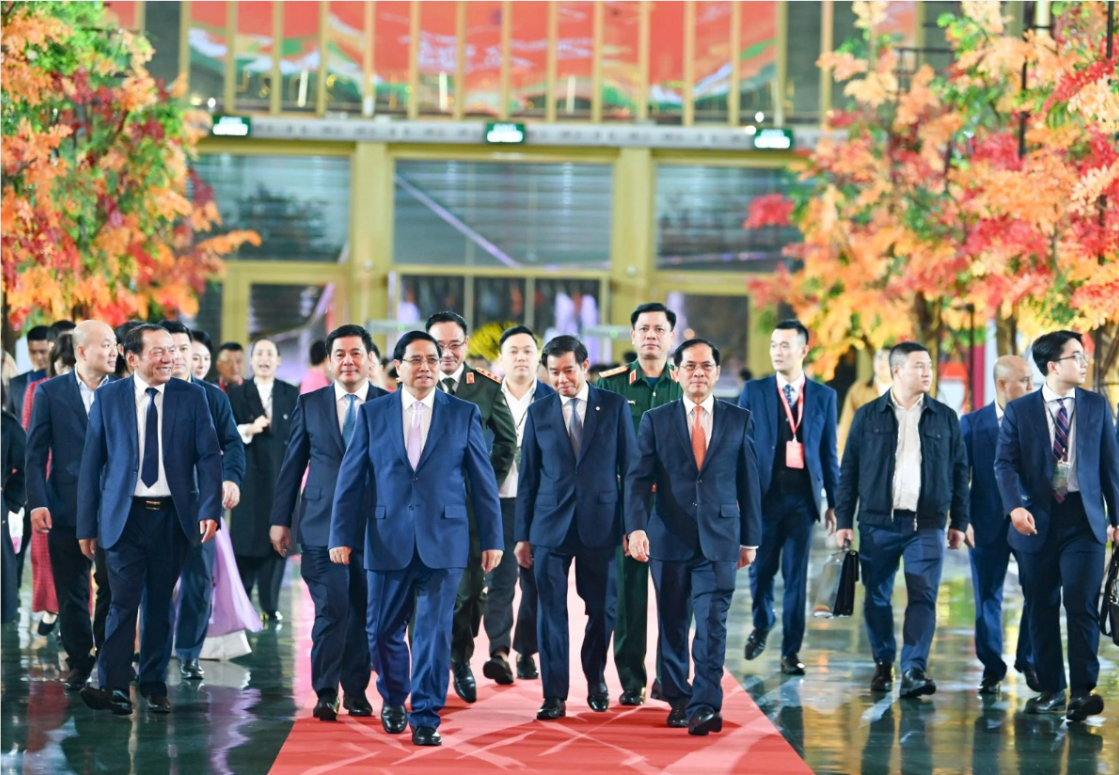
19:05 | 23/03/2025 20:09 | 04/11/2025Trade
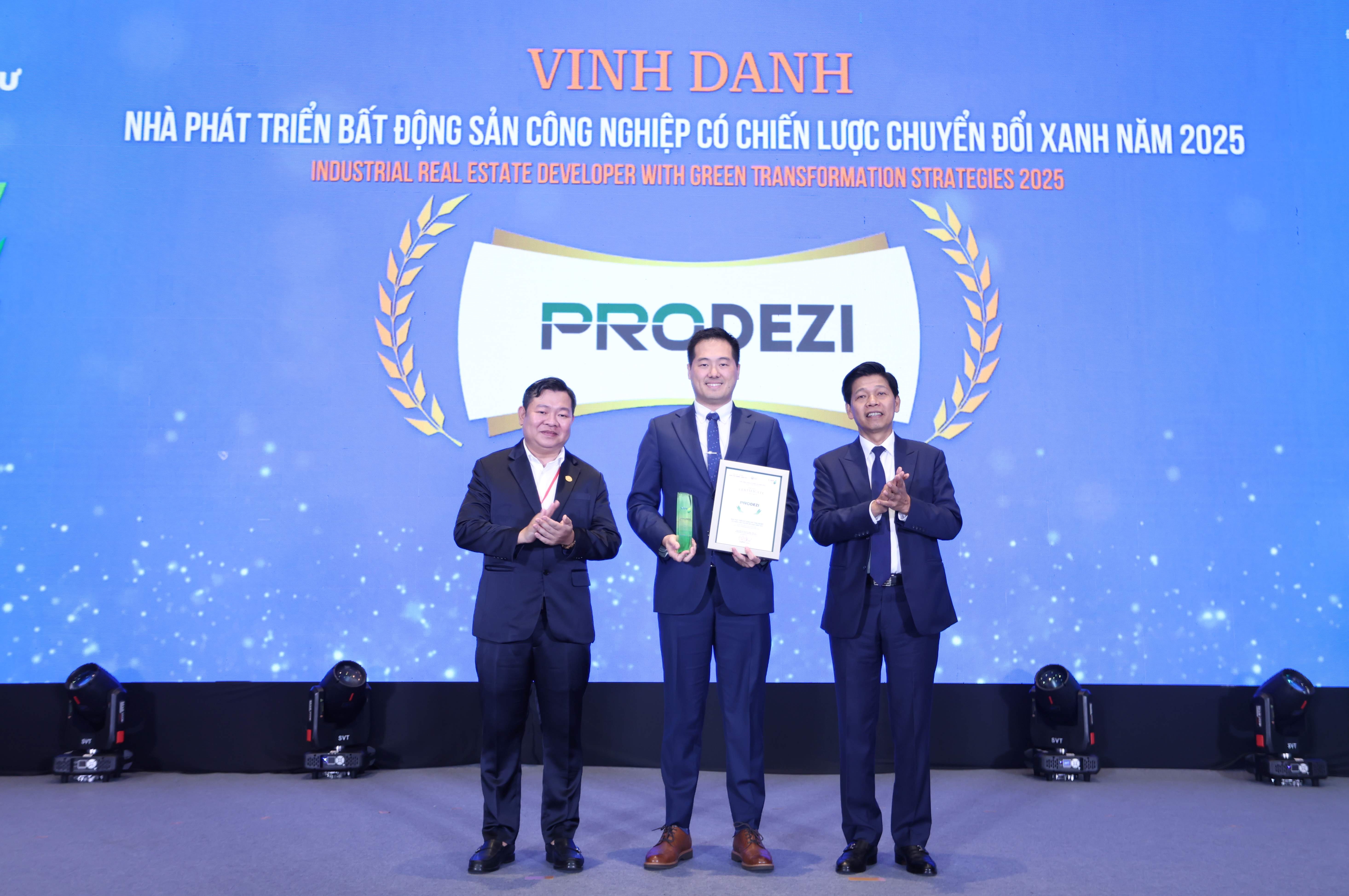
19:05 | 23/03/2025 20:06 | 04/11/2025News and Events
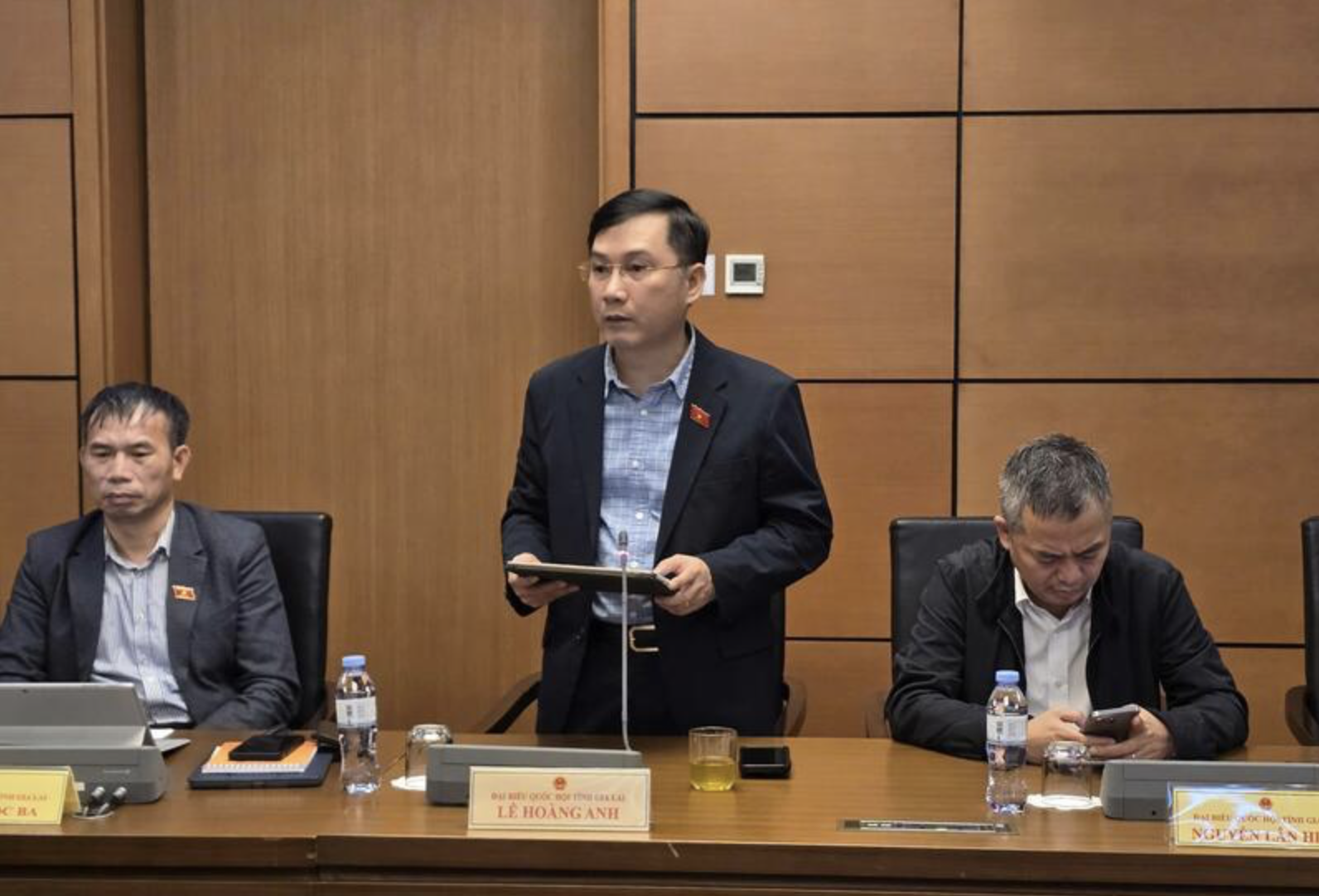
19:05 | 23/03/2025 11:43 | 04/11/2025Trade
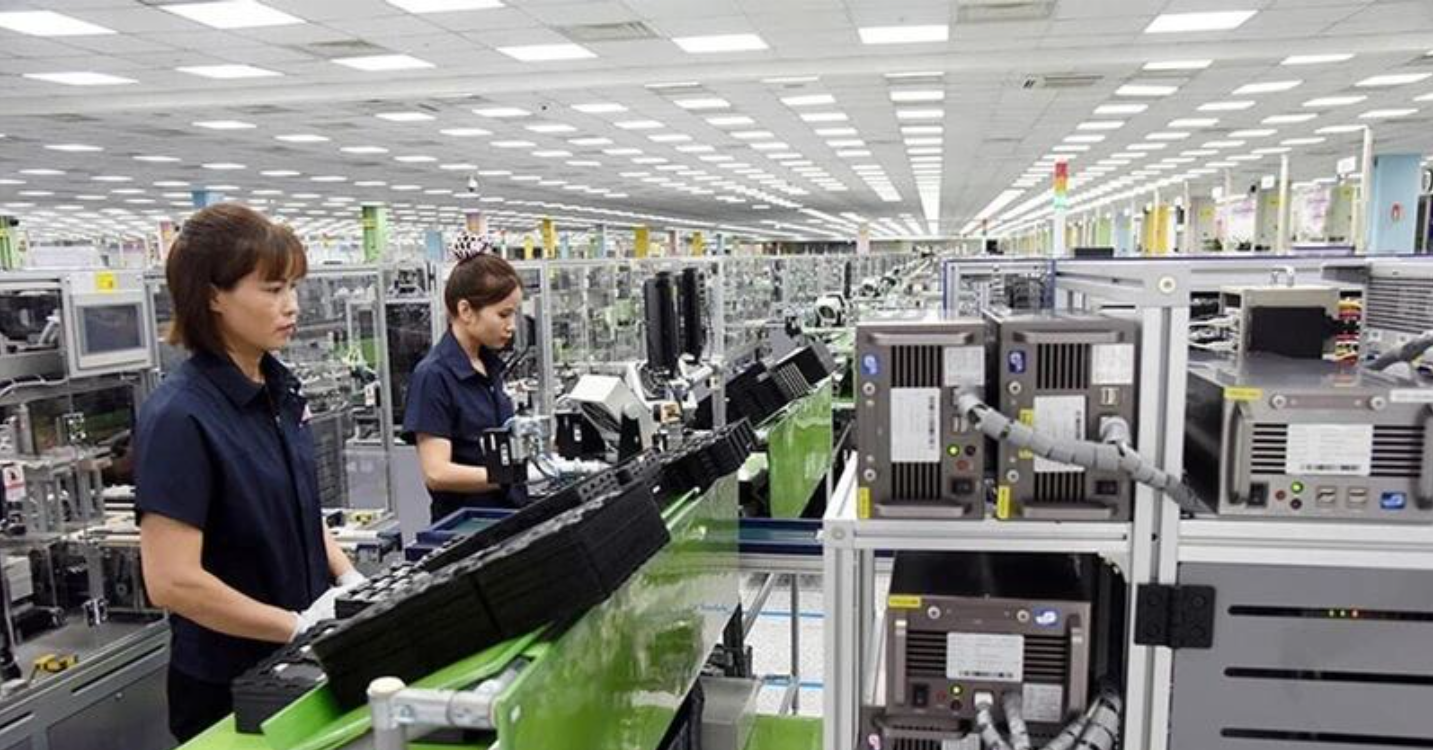
19:05 | 23/03/2025 11:39 | 04/11/2025Industry